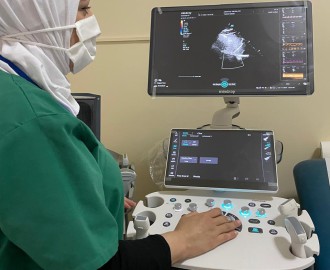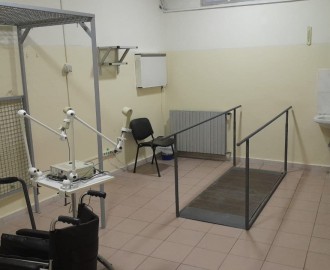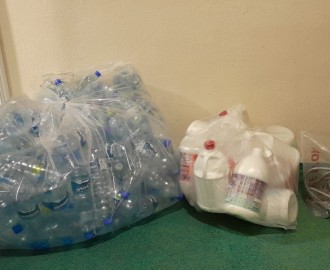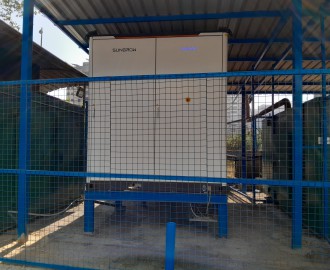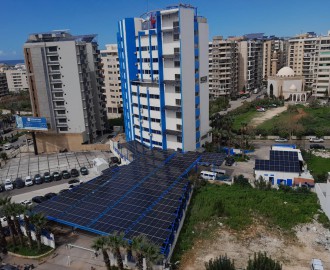These 3 giant solar batteries actively ensure energy independence, including during a large part of the night, to guarantee quality, continuous care and respect through concrete actions towards Nature.
In addition, we demonstrate management of our energy sector such that it is possible for us to reintroduce into the public network the surplus, which represents the energy that could not be stored due to the batteries being full and consumption lower than production.
Additional information on what a solar battery is:
A large solar battery is an energy storage device designed to accumulate electricity produced by solar panels and release it as needed. It is used in homes, businesses and even on an industrial scale to optimize energy autonomy and reduce dependence on the electricity grid.
Its operation is based on several stages:
1) Electricity production: Solar panels convert solar energy into direct current (DC).
2) Energy storage: Electricity is stored in the battery in chemical form.
3) Conversion and distribution: An inverter transforms the stored energy into alternating current (AC) to power electrical appliances.
Use and management:
1) When solar production is higher than consumption, the excess is stored.
2) When production is insufficient (night, bad weather), the battery releases the accumulated energy. Some installations also allow excess electricity to be sold back to the grid.
There are several types of solar batteries:
1) Lithium-ion: High-performance, durable, and quick to recharge (e.g., Tesla Powerwall).
2) Lead-acid: Less expensive but with a shorter lifespan and lower efficiency.
3) Flow batteries: Ideal for large-scale storage thanks to their high charge/discharge capacity.
4) Sodium-ion and other new technologies: Promising for improving safety and reducing costs.
So here are the reasons for using solar batteries:
✅ Energy autonomy (reducing dependence on the grid)
✅ Savings (storing energy for use during peak hours)
✅ Green energy (reducing carbon footprint)
✅ Security (backup power in case of grid failure)


